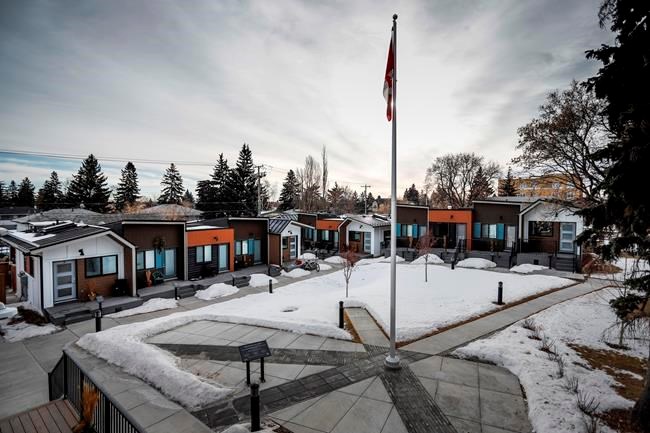The proposal to build six roughly 340 square foot homes is led by the Matawa tribal council, and would support precariously housed members from its nine First Nations who are living in Thunder Bay.
Matawa sees the pilot as a way to stress-test the tiny homes concept, which policy analyst Paul Capon believes could be a potent tool in alleviating homelessness and housing challenges both in Thunder Bay and member First Nations.
“I think ultimately, all people want a place to call their own, a sense of security and privacy – they’re looking for some type of foundation,” he said. “This begins that process.”
Advocates hope the pilot project will open the door to build more tiny homes that serve a wider demographic throughout the city.
A Thunder Bay tiny homes committee that includes Matawa, the Lakehead Social Planning Council (LSPC), and local architects and builders will provide details of the pilot at a city council meeting Monday.
The group plans to return to council in the new year to formally request support, including an ask for a parcel of city-owned land.
The group is eyeing a wooded area adjacent to Matawa’s newly-acquired training and wellness centre on Algoma Street North, formerly the Dawson Court home for the aged. It’s an ideal location, said Capon.
“We’re fortunate the next-door neighbour is the Matawa Training and Wellness Centre,” he said. “There’ll be a clinic there through the Matawa health co-op, our employment agency, and Awashishishewiigiihiwaywiin child and family services.”
It’s also just up the road from the Thunder Bay Indigenous Friendship Centre and the Salvation Army’s Journey to Life Centre, he noted.
Bonnie Krysowaty, social researcher with the LSPC, said tiny homes have shown promise in other Canadian cities like Calgary, Edmonton, Ottawa, and Sherbrooke, Quebec. Some of those are transitional housing projects, while others simply appeal to the cost-conscious and community-minded.
“Ideally, we'd like to see lots of pockets of tiny homes throughout Thunder Bay, because people would like to have choices [about] what type of house they live in, but also where they live,” Krysowaty said. “I get calls all the time from all sorts of people asking if tiny homes are available… and they’re people from all kinds of age groups, different income groups. That shows me a lot of people are interested."
“People [may] want to pare down after living in a four-bedroom, three-bathroom house and now they find themselves alone in that house and not wanting such a big space. Or maybe it’s a young person who’s on their own, maybe it’s somebody with a really low income who just doesn’t want to have to worry about the bills of a large home.”
The partnership with Matawa is a great place to start, Krysowaty said, noting Indigenous people make up the majority of Thunder Bay’s homeless population, and experience higher rates of poverty.
Coun. Aldo Ruberto, who has championed the idea as chair of the city's poverty strategy, said supporting the pilot project is a way for the city to help address the homelessness crisis, though he emphasized it’s ultimately up to the province and feds to do so.
“This is not a city responsibility,” he said. “But the city is stepping up with partners – hopefully council is going to pass this.”
The idea has been in the works for years, first raised as part of the poverty reduction strategy in 2017, Krysowaty said.
The Thunder Bay tiny homes committee recently secured seed funding from the Canadian Mortgage and Housing Corporation (CMHC) to develop a business plan for the pilot, and is working to develop cost estimates, final designs, and a funding strategy.
Tiny homes tend to range in price between $40,000 and $80,000, though some models can cost much more.
The project will include a heavy focus on supporting local employment and skills development, said Capon, working with local builders and with schools to provide trades-based learning opportunities.
“Ideally, if it’s successful, we’d like to use this to train more people and possibly bring tiny homes up to our remote First Nations," he said. "There’s a real need for housing in our First Nations, and this could be a catalyst to build that economy in Thunder Bay.”
Ruberto said while he believes the concept is solid, it will take significant funding and community buy-in to get it off the ground.
“People think if you’re going to build tiny homes, it should be no problem,” he said. “But you need funders, you need partners – you have to figure out who’s going to operate it, what type of tiny home.”
